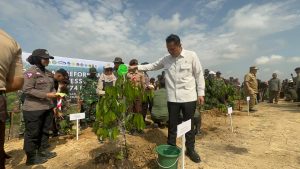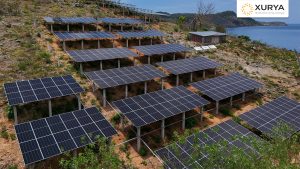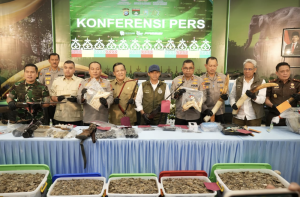Jakarta – More than 400 delegates from 195 member countries of the Intergovernmental Panel on Climate Change (IPCC) attended the 62nd Plenary Session in Hangzhou, China, this week. The meeting aims to discuss and agree on the draft outline of the Seventh Assessment Report (AR7), which will guide understanding global climate change.
The IPCC, which has three main working groups, will produce science-based reports on various aspects of climate change. Working Group I focuses on the physical science of climate change, Working Group II on impacts, adaptation and vulnerability, and Working Group III on climate change mitigation strategies.
In a press release from the World Meteorological Organisation (WMO), on Monday, February 24, IPCC Chairman Jim Skea said, “This is a pivotal session for the delivery of the IPCC’s Seventh Assessment Report”, referring to the global reference in understanding climate change and its impacts.
At the opening session, China’s Special Envoy on Climate Change, Liu Zhenmin, and the China Meteorological Administration Administrator, Chen Zhenlin, addressed the delegates and observer organisations. WMO Deputy Secretary-General Ko Barrett said the importance of the report for global policy.
“The findings of our work are not just academic; they serve as a guiding compass for governments as they navigate the complexities of climate change,” Barrett said.
Barrett also highlighted that 2024 will be the hottest year on record, with global temperatures reaching around 1.55°C above pre-industrial levels. “And if it isn’t true yet, I would venture to say it will be soon, that every one of us will know somebody who has been affected by an extreme event like severe flooding or extreme heat,” she said.
The session also features video messages from Inger Andersen, Executive Director of the United Nations Environment Programme (UNEP), and Simon Stiell, Executive Secretary of the UN Framework Convention on Climate Change.
In addition to discussing the AR7 Report, the IPCC will review the Methodological Report on Carbon Dioxide Removal Technologies, including carbon utilisation and storage. The National Greenhouse Gas Inventory Task Force also develops methodologies for measuring carbon emissions and removals.
As an organisation sponsored by WMO and UNEP, the IPCC is tasked with assessing thousands of recent scientific studies to provide a comprehensive picture of the drivers of climate change, its impacts, and the adaptation and mitigation measures needed to reduce future global risks. (Hartatik)
Banner photo: Image generated by OpenAI’s DALL·E via ChatGPT (2024)















